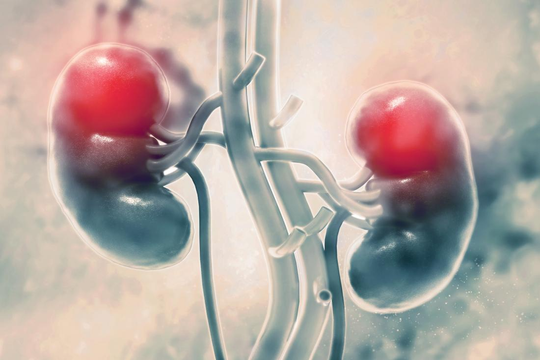What happens when you have a sleepless night
Not getting enough sleep causes nerve endings to "get suffocated", thereby increasing the risk of Alzheimer's disease.
Sleep is important for your heart, weight, and overall health, as anyone who has tossed and turned at night knows. Research suggests that poor sleep quality may be linked to Alzheimer’s disease. A new study has uncovered important pieces of the puzzle.
Early signs of Alzheimer’s include tangles of tau protein in the brain, along with amyloid-beta plaques. In a study of 119 people aged 60 and older, researchers monitored people’s sleep at home for a week using portable monitors that measured their brain waves as they slept. The volunteers wore a sensor watch to track their body movements throughout the night.
Researchers measured levels of amyloid and tau proteins in the brains and cerebrospinal fluid of the volunteers. They found a link between low levels of slow-wave sleep and high levels of tau protein in the brain. The tau-amyloid ratio was also higher in the cerebrospinal fluid of people with poor sleep quality.
These findings were published in the scientific journalTranslational Medicine.
|
Image:SOVA Night Guard. |
Not long before, the same group of researchers discovered that just a single night of poor sleep can increase levels of tau protein. The researchers collected cerebrospinal fluid samples from eight adults who were monitored during a single night of sleep and then during 36 hours of sleep deprivation. They found that tau protein levels increased by 51.5 percent in the sleep-deprived subjects. In a parallel experiment, they found that sleep-deprived mice had twice the amount of tau protein as well-rested mice.
David Holtzman, MD, chair of the Department of Neurology at Washington University School of Medicine in St. Louis, and author of both studies, believes the link between poor sleep quality and Alzheimer's disease is becoming clearer.
These new findings have implications for Los Angeles sleep specialist Dr. Michael J. Breus, who is the author of several books on sleep.
"When you don't get three or four hours of sleep, it slows down the brain's waste removal, leaving amyloid and tau proteins around the brain and brain cells. They basically choke nerve endings, which is a big contributor to Alzheimer's disease," Breus explains.
"This is the first time we've seen a link between disrupted sleep, poor sleep quality, and tau protein in the brain," said Nick McKeehan, assistant director of the Division of Aging and Alzheimer's at the Alzheimer's Drug Foundation of America. "This is an important piece to the puzzle."
“Poor sleep quality may increase the risk of Alzheimer’s disease, but Alzheimer’s disease can also disrupt sleep. More research is needed to draw firm conclusions,” he added.
Until then, everyone should take a hard look at their sleep habits and find ways to correct mistakes like drinking caffeine late in the day or watching TV before bed. Aim for 7-8 hours of sleep each night. If you have made lifestyle changes and still have trouble sleeping, consult your doctor.









